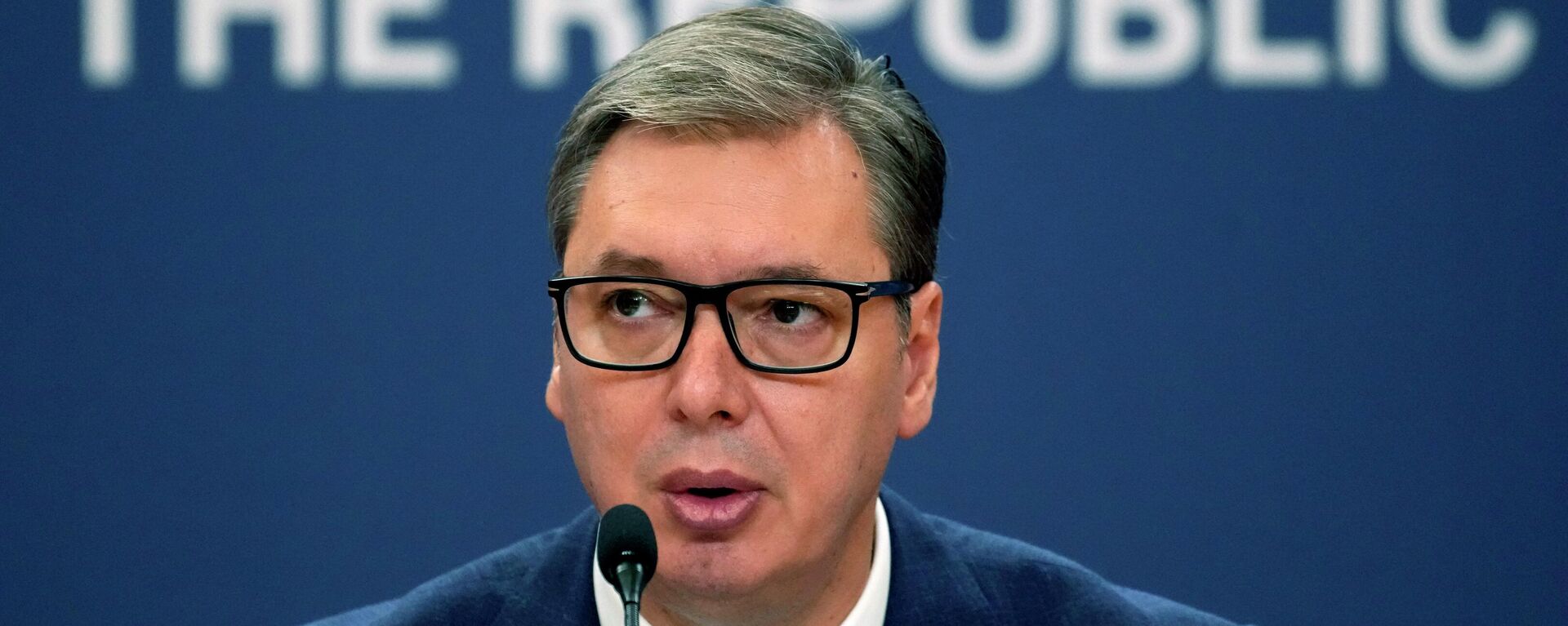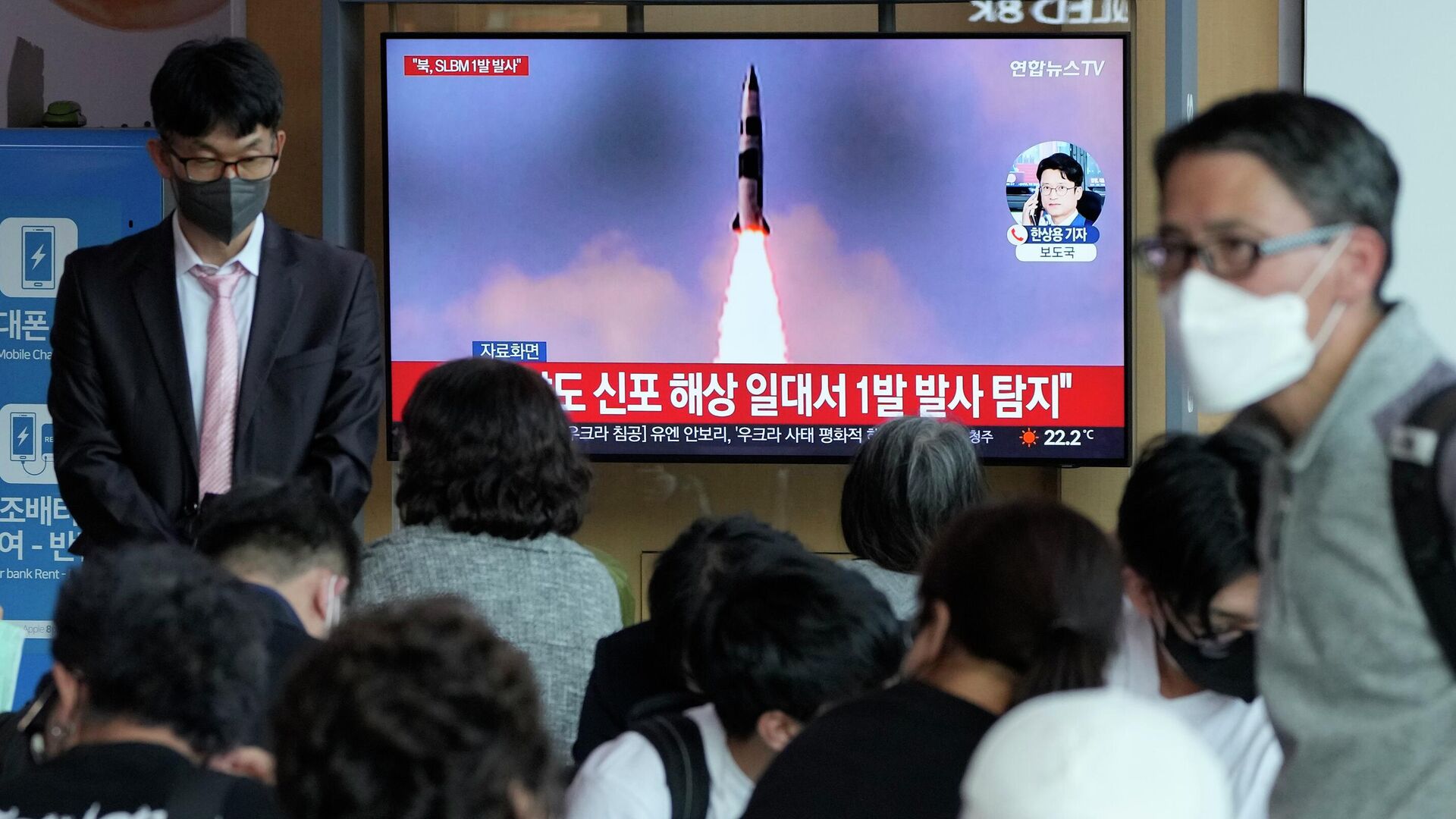https://sputnikglobe.com/20230221/trump-claims-world-war-iii-has-never-been-closer-but-forgets-about-his-dprk-nuclear-spat-1107680890.html
Trump Claims World War III 'Has Never Been Closer' But Forgets About His DPRK Nuclear Spat
Trump Claims World War III 'Has Never Been Closer' But Forgets About His DPRK Nuclear Spat
Sputnik International
In his latest intervention in global politics, former US President Donald Trump accused the Biden White House of being full of “warmongers” bent on triggering a nuclear war with Russia. However, he conveniently forgot his own record of belligerence against a nuclear power, North Korea, while he was in the hot seat.
2023-02-21T22:54+0000
2023-02-21T22:54+0000
2025-04-07T11:06+0000
donald trump
nuclear war
russia
north korea
viral news
https://cdn1.img.sputnikglobe.com/img/07e6/05/07/1095338945_0:0:2863:1611_1920x0_80_0_0_629de09a5ffcbaeb9ec4b733c604a8d5.jpg
“World War Three has never been closer than it is right now,” Trump said on Tuesday in a video in his Truth Social media website.“We need to clean house of all of the warmongers and ‘America Last’ globalists, and the deep state, the Pentagon, the State Department and the national-security industrial complex,” he added, claiming to have been the only president to reject the advice of generals, bureaucrats, and diplomats who “only know how to get [the US] into conflict” but not out of it.The former president claimed the conflict in Ukraine, which turns 1 year old on Friday, could be ended in 24 hours with the right leadership.In August 2017, amid a tense showdown between the DPRK and US ally South Korea, Trump threatened the nuclear-armed socialist state with “fire and fury like the world has never seen” if it continued to make threats against the US. Weeks later, Pyongyang tested its first thermonuclear weapon, and Trump soon proposed creating the W76-2 “micro-nuke,” which analysts warned was extremely dangerous because it lowered the threshold for the use of nuclear weapons.Those efforts ultimately failed as Trump refused to give concessions on economic sanctions before the DPRK had totally denuclearized, and relations deteriorated.
https://sputnikglobe.com/20230221/everyone-is-getting-ready-for-war-vucic-says-serbias-arms-exports-selling-like-hotcakes-1107680686.html
russia
north korea
Sputnik International
feedback@sputniknews.com
+74956456601
MIA „Rossiya Segodnya“
2023
News
en_EN
Sputnik International
feedback@sputniknews.com
+74956456601
MIA „Rossiya Segodnya“
Sputnik International
feedback@sputniknews.com
+74956456601
MIA „Rossiya Segodnya“
north korea, kim jong un, donald trump, world war iii, nuclear war,
north korea, kim jong un, donald trump, world war iii, nuclear war,
Trump Claims World War III 'Has Never Been Closer' But Forgets About His DPRK Nuclear Spat
22:54 GMT 21.02.2023 (Updated: 11:06 GMT 07.04.2025) In his latest intervention in global politics, former US President Donald Trump accused the Biden White House of being full of “warmongers” bent on triggering a nuclear war with Russia. However, he conveniently forgot his own record of belligerence against a nuclear power, North Korea, while he was in the hot seat.
“World War Three has never been closer than it is right now,” Trump said on Tuesday in a video in his Truth Social media website.
“We need to clean house of all of the warmongers and ‘America Last’ globalists, and the deep state, the Pentagon, the State Department and the national-security industrial complex,” he added, claiming to have been the only president to reject the advice of generals, bureaucrats, and diplomats who “only know how to get [the US] into conflict” but not out of it.
“These people have been seeking confrontation for a long time,” Trump said. “Now we’re teetering on the brink of World War III and a lot of people don’t see it.”
The former president claimed the conflict in Ukraine, which turns 1 year old on Friday, could be ended in 24 hours with the right leadership.

21 February 2023, 22:14 GMT
While it’s true that Trump rejected the advice of figures pushing for war, most notably his national security adviser, John Bolton, Trump also flouted their more cautious advice on multiple occasions, and brought the world to the brink of nuclear war with the Democratic People’s Republic of Korea (DPRK) in 2017.
In August 2017, amid a tense showdown between the DPRK and US ally South Korea, Trump threatened the nuclear-armed socialist state with “fire and fury like the world has never seen” if it continued to make threats against the US.
Weeks later, Pyongyang tested its first thermonuclear weapon, and Trump soon
proposed creating the W76-2 “micro-nuke,” which analysts warned was extremely dangerous because it lowered the threshold for the use of nuclear weapons.
The situation was defused months later by the DPRK, not Trump, when leader Kim Jong-un announced a unilateral moratorium on nuclear weapons tests. A rapprochement began in early 2018, when the two Koreas entered the Winter Olympics under a united Korean flag at PyeongChang, South Korea, and saw multiple rounds of peace talks between Pyongyang, Seoul, and the United States, to end the war that began in 1950.
Those efforts ultimately failed as Trump refused to give concessions on economic sanctions before the DPRK had totally denuclearized, and relations deteriorated.


